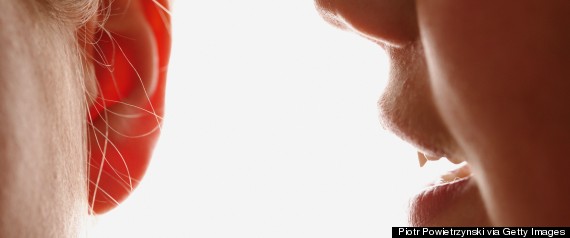
With Thanksgiving here, now is the time when many of us pause to reflect on all that we have and give thanks. But research shows there are major benefits to practicing gratitude -- which Robert Emmons, a professor in UC Davis' psychology department and author of Gratitude Works, defines as an "awareness of how we are supported and sustained by others, and a desire to give back the good that we have received" -- throughout the year. It boosts well-being, improves sleep and may even help improve immune system function.
In more poetic terms, "gratitude makes life freer, lighter and easier," Emmons tells The Huffington Post. "It empowers us to take control over our emotional lives, and not be at the whim of others or circumstances." Here are four simple ways to work gratitude into your daily life now -- and throughout the year.
Write a letter...

Steven Toepfer, an associate professor in the department of human development and family studies at Kent State University, has investigated the close connection between gratitude and well-being. In a 2011 study of more than 200 relatively happy undergraduate students, he and his team found that those who wrote one meaningful letter of gratitude per week over the course of three weeks -- spending about 15 to 20 minutes on each -- experienced significant gains in happiness and life satisfaction, and a decrease in depressive symptoms.
"You don't even have to mail the letters," Toepfer says. "The process is about reflecting, in a conscious way, on the things you are grateful for."
There is some suggestion in the body of literature on gratitude and well-being that those gains diminish with time, and some of the students in the study reported that they found it more difficult to write the third letter than the first, Toepfer says. But overall, the study suggests that a few minutes spent directing real gratitude toward a person once a week can make a big difference.
...or get out your journal.

There's a reason why Oprah is such a vocal proponent of the gratitude journal: Emmons' research has found that men and women who wrote a few lines each week about things that had occurred recently that made them feel grateful tended to feel more optimistic and better about their lives overall. (If pen and paper isn't your style, try one of the many gratitude apps available now, Emmons urges.) As Forbes reports, studies have even found that keeping a gratitude journal may help improve sleep.
"We all have this store of gratitude, and if we let it sit dormant, it's not going to benefit us," Toepfer says. "All these 'gratitude inductions' do is help us tap into that wonderful reservoir we have."
Watch what you say.

Gratitude is as much about what you don't say as what you do, according to Emmons -- and indeed, as NBC has reported, studies suggest that complaining about one's problems may be linked to depression and anxiety. Of course, research has also found that there can be benefits to venting, so it's all about striking a balance.
"Grateful people have a particular linguistic style," Emmons says -- they tend to talk about things like gifts, givers, blessings, fortune and abundance.
"Ungrateful people, on the other hand, tend to focus on deprivation, deservingness, regrets, lack, need, scarcity [and] loss," he adds. "The trick is to watch your mouth! We are what we say."
Immerse yourself in it.

If you still need an extra push to actually make gratitude a part of your daily life, reading inspirational materials can be a powerful means of, as Emmons puts it, "massaging the truths contained in them deep into our bones." Everyone from Ralph Waldo Emerson to Charles Dickens has weighed in on the importance of giving thanks, and spending a few minutes reading others' reflections on the importance of the practice will help you take it seriously in your own life, Emmons says.
Once you've embraced gratitude, give it some time before you expect changes. With most small gratitude practices, benefits emerge at around the three-week mark, Emmons says -- "long enough for a behavior to become a habit." Though few studies have looked long-term, there is evidence that the effects can last for months, even years. "Changes can be permanent," he says, "as the brain rewires."
